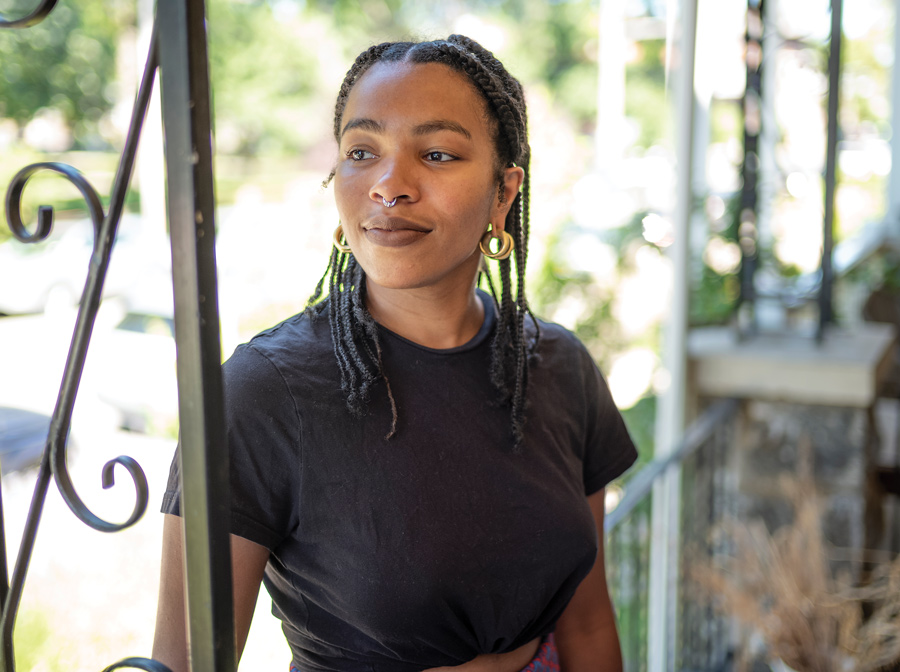
untangling the web
“It blew my mind,” Williams says of the document born out of the First National People of Color Environmental Leadership Summit in 1991. “It showed me that environmental justice is really more of a lens that forces us to challenge the distinction between humans and the environment and think about how the health of the environment reflects the health of the people, and vice versa.”
That informs Williams’s efforts as co-executive director of PLAN, the Post-Landfill Action Network, which comprises a network of 700 colleges across the U.S. as well as dozens of partners active in local, national, and policy-based movements. Started by college students in 2013 as an extension of the zero-waste movement, PLAN helps students to look beyond the conventional approach to zero waste and also offers organizing and leadership training.
“It’s building awareness of the whole complex system in which waste operates,” she says.
Williams’s environmental activism started in high school, organizing against the incinerator in her hometown of Chester, Pa. At the time, budget cuts to public education caused her school to slash courses.
“The principles of environmental justice offered an approach to understand how those budget cuts were not an isolated event, but rather an ongoing pattern of disinvestment and environmental racism,” she says. “I started thinking in terms of self-determination — the people’s ability to shape the environment around them.”
Williams previously worked for the nonprofit Mural Arts Philadelphia, supporting projects aimed to help redefine public space, and in the City of Philadelphia’s Office of Sustainability. There, she learned to effect change within the constraints of institutions.
At Swarthmore, she helped raise the environmental literacy of Chester through a Lang Opportunity Scholarship, and reframe racial and juvenile justice as a volunteer with Chester Youth Courts. For her thesis project, Williams explored how education can be leveraged to spur environmental justice and civic particaption for students.
“My Swarthmore education developed the ways I’m able to talk about environmental justice,” she says, “to see it as not just a set of principles, but something that’s living with and influenced by all of my experiences.”